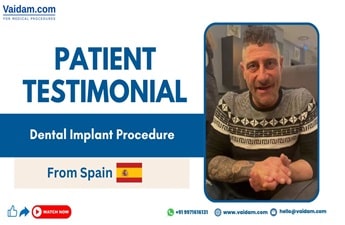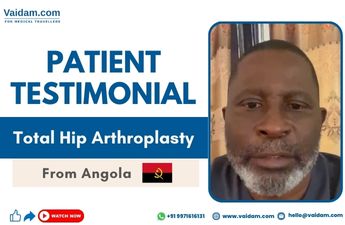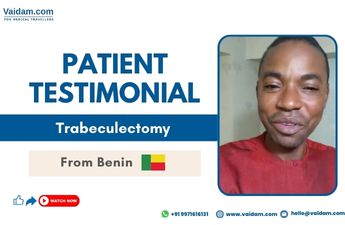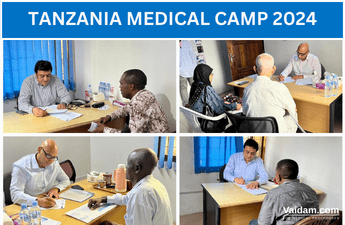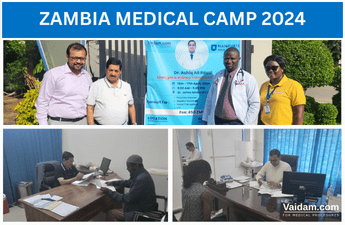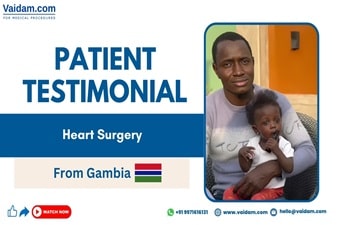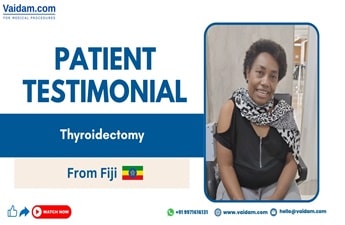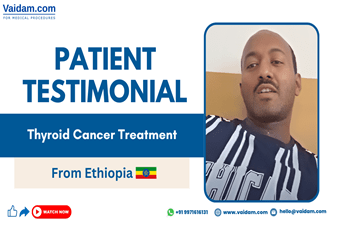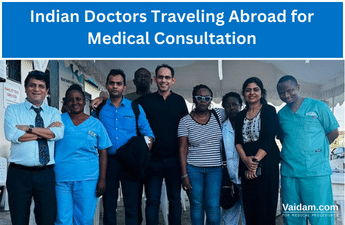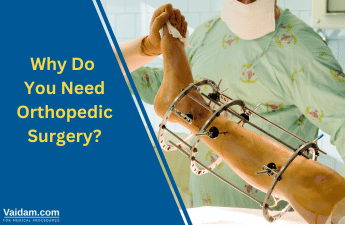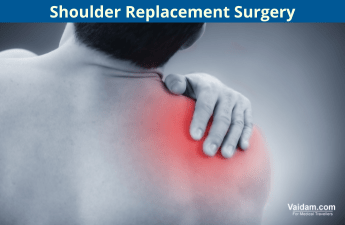Imagine your life if you had no muscles, ligaments, or bones. What would it be like when you couldn’t do much? Well, you can binge-watch your favorite shows and movies on Netflix.
Now, let’s get back to reality. As we all have muscles, bones, joints, tendons, and ligaments, but what if they aren't functioning properly? You won’t be able to perform even your daily activities. All you may experience is swelling, immobility, weakness, and painful movements.

The skeleton may experience several health issues if not taken care of properly. The human body may experience different health problems depending on the body part and they are categorized as:
Knee Disorders | Hip Disorders | Foot & Ankle Disorders | Arm, Wrist & Hand Disorders | Spine Disorders | Shoulder Disorders | Other Disorders |
| ACL tear | Hip bursitis | Achilles tendons injuries | Carpal tunnel syndrome | Torn disc | Frozen shoulder | Arthritis |
| Knee pain | Hip pain | Ankle pain | Tennis elbow | Scoliosis | Rotator cuff | Cartilage damage |
| Patella pain | Plantar fasciitis | Golfer’s elbow | Spinal Stenosis | Clavicle fracture | Lyme disease | |
| Meniscus tear | Heel pain | Wrist pain | Herniated Disc | Sports injuries | ||
| Knee replacement | Foot and ankle pain | Degenerative disc disease | Fractures |
The Need Of An Orthopedic Surgery
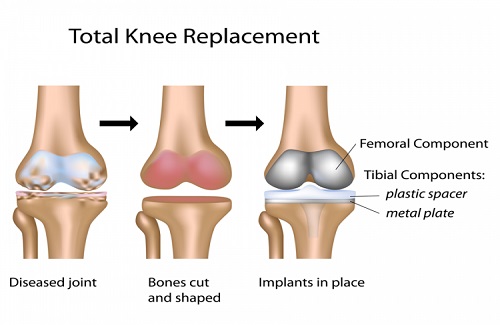
-
Like any other surgery, there is a no-one-size fits-all answer to decide when to have surgery.
-
Surgery is the last option where other treatments fail. Your healthcare team decides when surgery is the most logical step.
-
In the case of orthopedic disorders, the need for surgery arises when there is no relief from pain, you’re facing instability or there is no mobility to an extent affecting your daily activities and hence, the quality of life.
-
Talking about orthopedic surgery, knee and hip replacements are the most common surgical procedures that happen across the globe.
Types Of Orthopedic Impairments
Orthopedic impairment is the ‘term’ related to refraining from performing a normal physical task such as walking, sitting, standing, picking up an object, eating or even speaking. Also, when a child’s physical inability holds back from their ability to learn and eventually, impacting their education, that’s what we call - Orthopedic Impairment.
As the body comprises nerves, tissues, muscles, therefore, there are three kinds of orthopedic impairments that can happen in a body and they are termed as follows:
-
Neuromotor Impairments:
- A neuromotor impairment occurs when there is even minor damage to the nervous system: the brain, spinal cord, and peripheral nerves.
- Suppose, your brain is a computer and the spinal cord, as well as peripheral nerves, are its USB cords to communicate with the external world.
- So, if the computer or either of the USB cords is damaged or abnormal since birth, then the neuromotor impairment occurs and that’s when the person is unable to communicate with the external world.
- It mostly happens in children and this can be known by their inability to move one or more limbs.
- Cerebral Palsy is one such disorder, where damage to the brain or improper development of the brain leads to movement and posture problems. -
Degenerative Diseases:
- Degenerative disease is another kind of orthopedic impairment which is a result of the continuous deterioration of body tissue.
- It is like when a computer starts functioning slowly over time and either of the USB cords develop cracks.
- Muscular Dystrophy is one such condition due to the progressive weakness of muscle mass and mostly happens in children. -
Musculoskeletal Disorders:
- Other than the nervous system (brain, spinal cord, and peripheral nerves), there could be more damage to the body that may affect your muscles, bones, and joints.
- It directly affects the human body’s movements or musculoskeletal system including muscles, tendons, ligaments, blood vessels, discs, nerves, etc.
- Carpel Tunnel Syndrome, muscle/tendon strain, ligament sprain, digital neuritis are some of the musculoskeletal disorders.
- They are mostly related to workplace injuries due to awkward postures, poor work practices, fitness, and unhealthy eating habits.
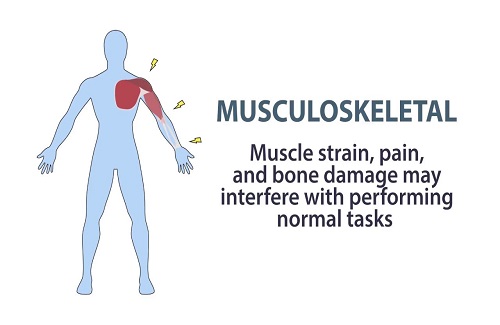
Popular Orthopedic Surgeries Performed In Turkey
Turkey has been a go-to destination for medical treatment across the world due to the ‘cost’ factor and easily-accessible location. The orthopedic surgeries in Turkey cost 2-4 times lesser than other developed parts of the world.
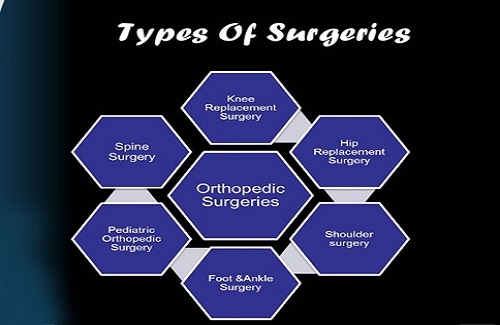
Also, the country offers zero waiting times to its patients. Therefore, you will get treated in the country on a ‘first come, first serve’ basis.
While Turkey has been on your hit list for a staycation, you can opt the country if your doctor recommends you the following orthopedic procedure:
-
Minimal Invasive Spine Surgery (MISS):
- Like any other minimally invasive surgery, MISS involves lesser incisions and muscle damage.
- Orthopedic surgeries like spinal fusion and lumbar decompression can be performed by using this technique.
- Decompression treats the compressed nerves in the lower spine by removing portions of a bone or herniated disc. -
Arthroscopy:
- Arthroscopy is a surgical procedure that involves a small incision and insertion of a pencil-sized instrument into the patient’s skin to visualize, diagnose and treat the joint problems.
- The instrument contains a small lens and lightening system to magnify the structures inside the joint. -
Knee Replacement:
- Generally, orthopedists opt for non-surgical solutions before jumping to surgical ones.
- Turkish hospitals offer a wide range of non-surgical and surgical procedures to treat their patients and restore their functional abilities.
- However, if you’re experiencing intense immobility problems due to severe knee pain, then knee replacement procedure might be the effective one. -
Hip Replacement:
- Hip, being the body’s largest joint, may require a hip replacement, if you suffer from severe hip pain.
- It is a surgical procedure in which a damaged hip joint is replaced by a prosthetic implant, mainly, a hip prosthesis.
- It can be performed as a hip replacement or hemi replacement. -
Arthroplasty:
- Arthroplasty is basically a prosthetic surgery that is applied to extreme calcifications after articular cartilage abrasions.
- When arthritis occurs due to cartilage erosions, then advanced limb prosthesis ae performed.
- Similarly, shoulder, hip, knee, ankle and elbow prosthesis are performed. -
Sports Injury:
- Sports injuries such as hip, knee, elbow, ankle, or shoulder injuries are treated.
- Sports injuries also include cartilage injuries in the knee, recurrent shoulder injuries, cartilage injuries.
- Such injuries are treated with open and closed injuries including all kinds of closed and open joints. -
Pediatric Orthopedics:
- Children with orthopedic disorders such as cerebral palsy, fractures, congenital hip dislocation, etc. are treated successfully in Turkish hospitals. -
Hand Surgery (Microsurgery):
- Hand surgery is a microsurgery that restores hand and finger function.
- The treatment deals with problems that may occur in the hand or upper extremity including injury and infection.
- The surgery corrects congenital hand deformities, nerve decompression, tendonitis, trigger finger, etc. -
Deformity Surgery:
- Deformity surgery includes joint deformity surgery, spinal surgery, bone/tissue tumor, and height extension surgery.
- Such surgeries are performed in Turkish hospitals.
Factors That Influence The Success Rate Of Orthopedic Surgery
Factor #1: Age
- Age has a crucial role in succeeding in any surgery.
- As orthopedic surgery is related to bones, joints, ligaments, and muscles, therefore, the older you are, there might be lesser chances of a successful surgery.
Factor #2: Type Of Surgery
- There are a number of orthopedic surgeries performed.
- The success rate is directly proportional to the type of surgery performed and how much follow-up care is actually followed. Because such major surgeries require strict follow-up care.
Factor #3: Type Of Implant
- As joint replacement is a replacement of a damaged joint with an implant that could be in the form of screws, plates, and prostheses.
- Therefore, the success rate also reflects on the type of implant and its acceptability by the body.
- Sometimes, the body rejects the implant. Therefore, it is important to monitor whether the body accepts the implant or not.
Factor #4: Overall Health
- For any surgery to be successful, it is important that the patient should be healthy enough to meet its consequences.
- Other vital organs should be in a proper functioning mode, else there would be complications.
Factor #5: Previous Surgery
- The success rate also depends on your previous orthopedic surgery.
- Suppose, if you have had a failed surgery previously, then it may reduce the chances of a successful surgery.
- Therefore, inform your medical team about the same to make it a successful one.
Factor #6: Type of Disease
- Orthopedic surgery is a solution for many orthopedic disorders where other non-surgical treatments fail.
- Therefore, the type of disease that is being treated and its degree of severity entirely change the game of a surgery.
These are some factors that have a major influence on making this surgery successful. However, it may vary from person to person which you should discuss with your surgeon before the surgery.
Preparations To Be Done For Preoperative Consultation With Your Surgeon
For satisfactory results, it is important to consult your medical team for a careful approach and to know about the specific needs.

The preoperative consultation is an important interaction between the patient and the physician.
It helps the surgeon:
-
To access the patient’s medical condition
-
To determine risk factors against the procedure
-
To evaluate the patient’s overall health status
-
To discuss the procedure in detail
Similarly, it also helps the patient to realize the possibility of complications during the preoperative time.
Before you visit your surgeon, it is important to give all the information about your health and orthopedic problem. This includes:
-
Type Of Orthopedic Problem: In this section, describe what kind of problem you have, where it began, how it bothers you.
-
Medical History: Note down all the health issues and how they have been treated till date.
-
Family History: It is important to inform your surgeon about your family medical history that may arise during the preoperative period.
-
Allergies & Sensitivities: Do list all the possible allergies and sensitivities that you have. Inform your surgeon if you have any possible reaction to any medicine, food, etc, or you may be sensitive to.
-
Current Medications: Make a list of all medications that you have been taking and their dosage. Do list all the over-the-counter medications and supplements that you have been taking.
-
Lab Tests, X-Rays: Do bring copies of all medical records including lab tests, blood reports, CT scans, MRI studies related to your orthopedic problem.
Also, you should prepare a list of questions and concerns that you want to clarify with the medical team and they are:
-
What kind of surgery do you prefer and why?
-
How will this surgery cure my disease or control symptoms?
-
What are the chances of its successful outcomes and possible complications?
-
How many patients have you treated with the same disease in the past?
-
What are the other possible treatments if this surgery won’t work out?
-
Is there any non-surgical treatment possible?
-
When can I return to my normal routine?
-
Do you have any experience in clinical trials that might work out?
Well, these are some questions you can ask your surgeon. These questions may differ as your current health status and requirements.
Preparations To Be Done Before Surgery
Before Surgery | After Surgery | At Discharge |
|
|
|
|
|
|
|
|
|
|
|
|
Types Of Implants Used In Orthopedic Surgery
There are some incidents when a person undergoes a surgical treatment that requires artificial support in the form of implants to improve the quality of life. This is where orthopedists insert implants to avoid suffering and pain. Implants, basically, are a replacement of damaged body parts, but they don’t affect your life negatively.
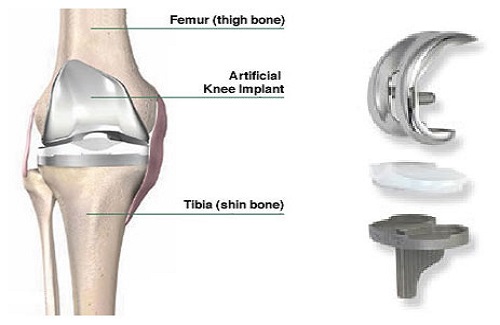
Talking about implants, there are different types of implants that can be used. However, these implants are put into the patient’s body as per their body’s acceptance.
There are three different types of implants used by orthopedic surgeons and they are:
-
Screws:
- These screws are identical to the screws found in a hardware store.
- The only difference is the screws used by orthopedic surgeons can have either a flat or Phillip's head.
- These screws tighten up the damaged areas such as rotator cuff or torn labrum, restore the fractured bone and restore the body part’s stability.
- These screws are not removed by the surgeon even after years and remain in your body. -
Plates:
- Plates are considered as a flexible and durable treatment for fractures. There are primarily five types of plates.
- Buttress Plates are used to treat fractures at the end of long bones, such as knee or ankle. It is used where the fractured site experiences an intense compressive force. These plates are designed in a way that they can move flexibly with the body. Some of them are L or T-shaped.
- Compression Plates repair fractured sites by using dynamic pressure between bone fragments to promote healing.
- Neutralization Plates are basically a category of plates that support the fractured site in accordance with a screw or other implants to stabilize the area.
- Tension Plates are wires to secure the fractured bone.
- Bridging Plates stabilize the area by providing length and alignment. -
Prostheses:
- Orthopedic surgeons use prosthetic implants to replace missing joints or bones and to provide support to the damaged bone.
- In most cases, orthopedists use hip and knee prostheses, that regain full motion in a short span of time.
Factors That Affect The Cost Of Orthopedic Surgery
Orthopedic surgery is a surgical procedure that involves major amendments within the body. There are several factors required to make a surgery successful and the ‘cost’ factor is an important one amongst all.
-
Type Of Surgery: As there are three types of orthopedic impairment, it entirely depends on what type of impairment a patient has. Therefore, orthopedists decide what type of surgery is needed to improve the quality of life.
-
Type Of Implant: If orthopedic surgery is performed to correct spinal, hip, knee, or disc problems, then it requires the insertion of implants. Hence, the cost also involves the type of implant used.
-
Medical Condition: Before any surgery to take place, it is important to note that the patient’s vital organs should be in a proper functioning mode. Also, the patient’s heart rate, blood pressure level, etc. must be proper before a surgery to be carried out.
-
Pre-surgical Tests: As orthopedic surgery requires thorough MRI scans, CT scans, X-rays, and blood tests. The costs involve rigorous evaluation and investigations before the actual procedure is carried out.
-
Type Of Hospital:
- The cost depends on the type of hospital: public or private, multispecialty or single-specialty, etc.
- It also varies if you’re traveling to another country or getting treated in your home country. -
Age:
- Age has a crucial role in carrying out any surgery.
- The older you are, the extra care you require and hence, it costs more. -
Medications And Follow-up Care:
- As orthopedic surgery is major surgery, therefore, it requires proper medication plans and follow-up care.
- This adds to the entire cost of surgery. -
Food, Travel, Accommodation, And Other Basic Amenities:
- if you’re traveling to another country, then the cost of travel, food, accommodation, etc. adds to the cost of the treatment.
- It totally depends on the type of treatment you require such as a stay in 3-star or 5-star hotel, VIP or standard room, type of cuisines, etc. -
Other Additional Factors:
- There are other factors as well that add to the entire treatment such as the expertise of the surgeon, diet to be followed, hospital fees, follow-up costs, and more.
Average Cost Of Orthopedic Surgery In Turkey
Turkey offers medical treatment which is 50-60 percent less as compared to other developed countries in the world.
As there are different types of orthopedic surgery performed in Turkey and so are their costs.
Medical Procedure | Cost |
| Hip Arthroscopy | USD 3,400 |
| Carpal Tunnel Syndrome Surgery | USD 1,570 |
| Tendon Repair | USD 3,380 |
| Knee Arthroscopy | USD 2,350 |
| Bone Fracture Treatment | USD 880 |
| Meniscus Surgery | USD 4,300 |
| Rotator Cuff Surgery | USD 5,800 |
| Shoulder Stabilization | USD 9,000 |
| Spinal Surgery | USD 6,600 |
| Microdiscectomy | USD 6,000 |
| Total Knee Replacement | USD 16,000 |
| Hip Replacement | USD 24,000 |
Factors To Consider While Searching For A Good Hospital And Surgeon
Whether you’re traveling to another country or getting medical treatment in your own home country, it is wise to look into various factors before finalizing your medical treatment.
-
Hospital Review: Getting treatment is a matter of life and your investment. Therefore, it is important to know the hospital’s reviews. There are various sources from where you can get the information - Google reviews, online websites, past patients’ experiences, etc.
-
Location: It is wise to choose the hospital near to the international hospital. Keep your traveling time as minimal as possible. Also during emergencies, the transportation facility for the patient should be quick and comfortable.
-
Infrastructure: The hospital’s infrastructure should be preferred as well. You wouldn’t want to get treated in an unhealthy environment. Also, the hospital keeps abreast of the latest technologies. The number of emergency units, ICU beds, matters as well.
-
Access To Blood Banks: Check whether the hospital has access to the blood banks. During surgeries, there are possibilities of excessive blood loss which sometimes leads to death. So, while selecting a hospital, look for this factor as well.
-
Interpreter: Select a hospital with a language interpreter facility. There are hospitals in Turkey that have a ‘help desk’ setup for international patients and provide interpreter facilities in different languages.
-
Medical Insurance: Before traveling, get information about the medical insurance policies and the hospitals that cover them. Also, go through your medical insurance policies to check the facilities to be provided and the hospitals that come under them.
-
Treatment: Opt for a hospital that keeps abreast of the latest, advanced medical technologies. Also, check the hospital’s accreditations and whether it’s a multispecialty hospital or a single specialty hospital.
-
Medical Personnel: While selecting a hospital, it is wise to look for the medical personnel allowed in that hospital, their experience, specialization, certifications. It is your right to know that your health is in safe hands. Therefore, it is advisable to go through the doctor’s profiles and reviews.

Top Orthopedic Surgeons In Turkey
-
Assoc. Prof. Dr. Halil Burç:
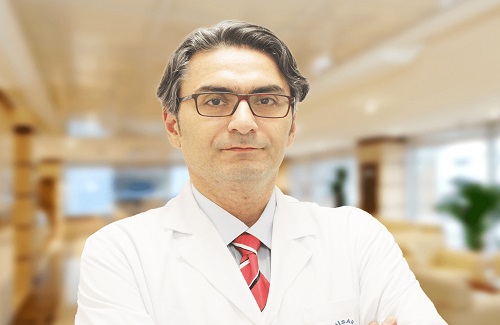
He is a well-known Orthopedist at Hisar Intercontinental Hospital, Turkey. He specializes in arthroplasty, spine surgery, trauma surgery, arthroscopy, and deformity. -
Dr. Gürsel SAKA:
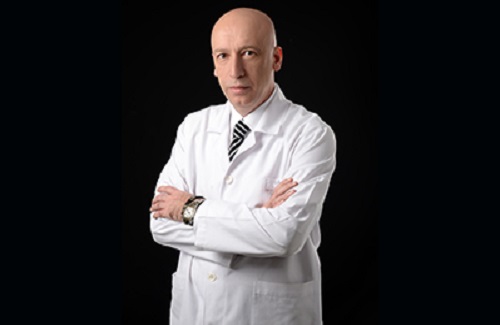
He is a well-experienced Orthopedist and Traumatologist at Hisar Intercontinental Hospital, Istanbul. He has more than 21 years of experience in managing and treating spinal and skeletal problems. -
Dr. Mehmet Taner Özdemir: He is amongst the top-rated Orthopedist in Turkey. He has 13 years of experience. He specializes in treating bone & soft tissue tumors, hip fractures and arthroscopic surgeries.
-
Prof. Ahmet Kiral: He is a renowned Orthopedics and Traumatology specialist at Anadolu Medical Center. He specializes in knee replacement surgery.
-
Prof. Ahmet Dogan: He is a well-experienced Orthopedist in Turkey. He has two decades of experience in managing and treating osteoporosis, scoliosis, and arthrosis.
Top Orthopedic Hospitals In Turkey
-
Medipol Mega University Hospital:

This hospital offers orthopedic consultation starting from USD 200. The hospital performs 183 procedures across 29 specialties. -
Hisar Intercontinental Hospital: The hospital is well-known for Ulnar Nerve Decompression Surgery starting from USD 1,800. Established in January 2007, the hospital performs 164 procedures across 25 specialties.
-
Medicana International Hospital: The hospital offers Ulnar Nerve Decompression procedures starting from USD 3,500. Established in January 1992, the hospital performs 229 procedures across 29 specialties.
-
Acibadem Hospital:

The hospital is well-known for performing ankle arthroscopy. It has a team of dedicated medical professionals who are well-versed with the latest, advanced technologies. -
Yeditepe University Hospital: The hospital offers orthopedic consultation starting from USD 100. Established in January 2016, the hospital performs 180 procedures across 28 specialties.
Role Of Vaidam Health Throughout Your Medical Journey

Vaidam Health has a patient-relation team that acts as an administrative and healthcare professional. They are experts in performing clinical duties and managing administrative tasks such as setting up a patient’s appointment with an appropriate doctor and other settings. They understand patients’ queries and clear their doubts.




